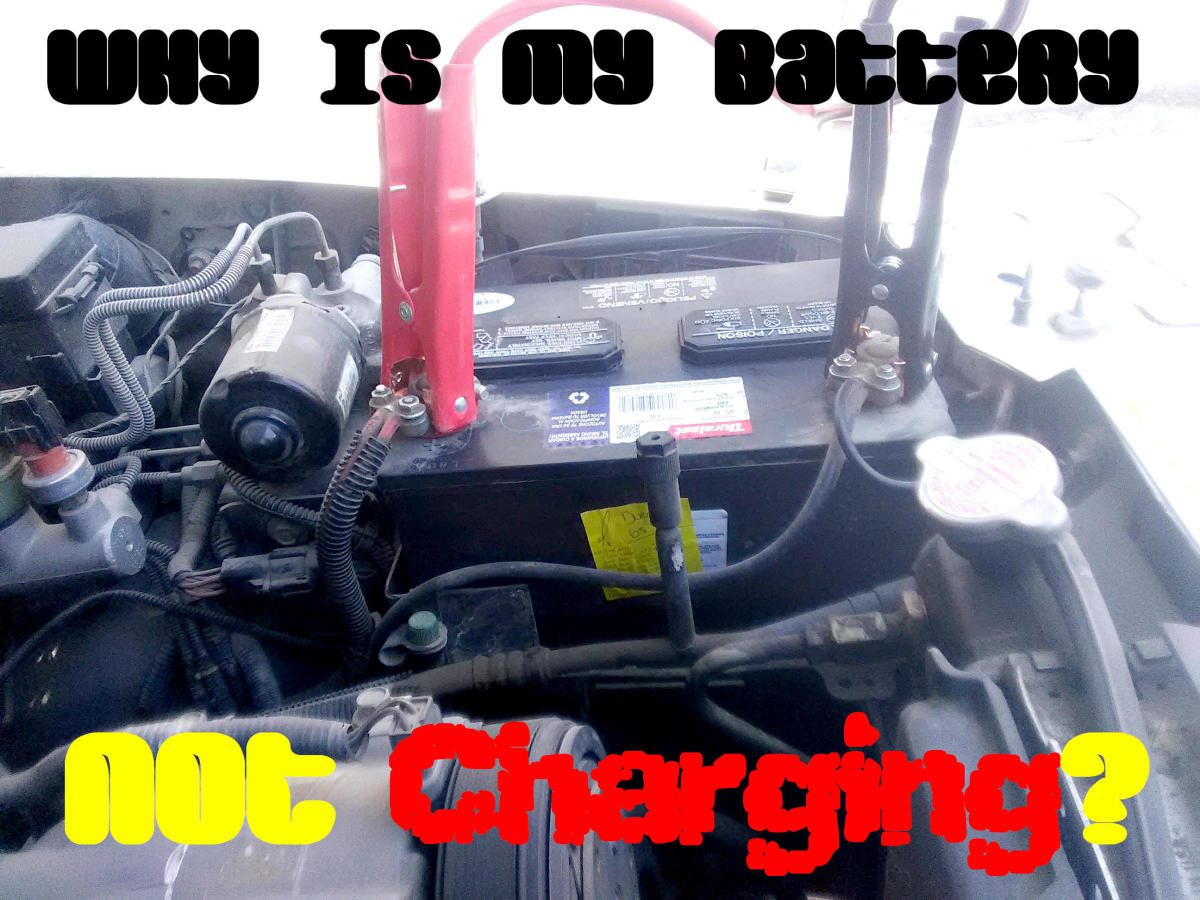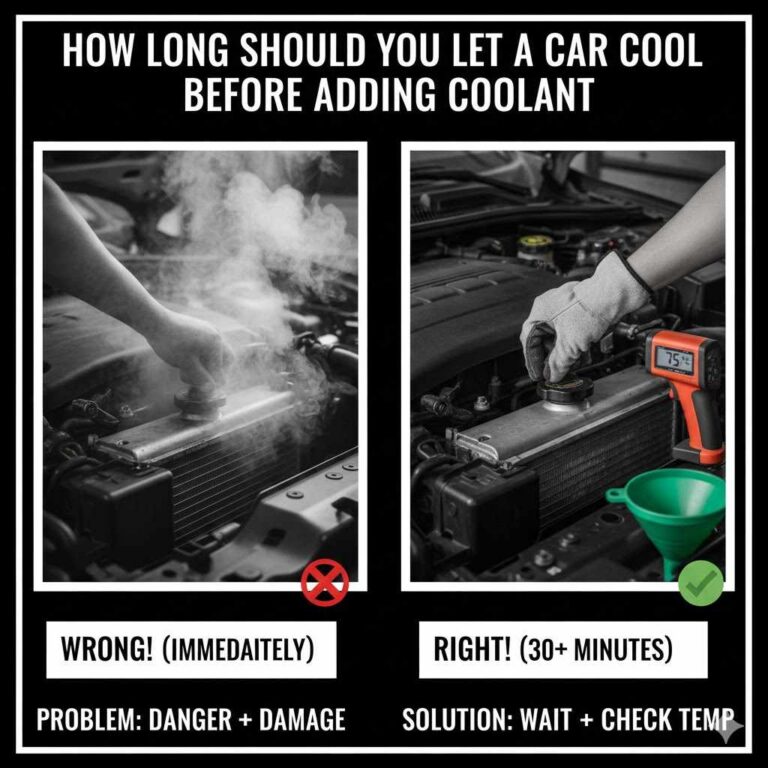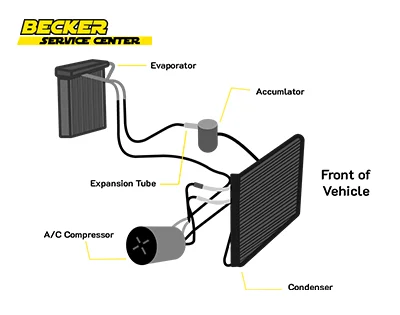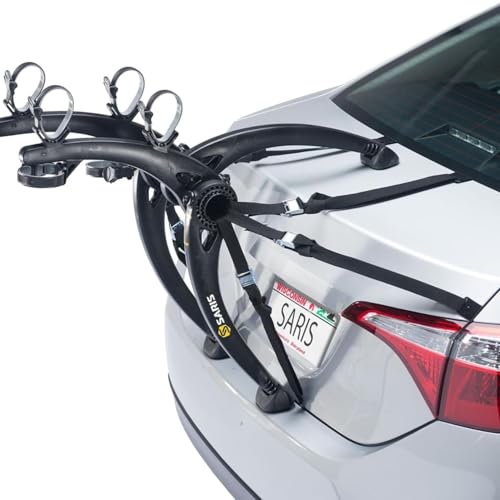Why Won’t My Car Battery Charge? Expert Solutions & Tips
Your car battery won’t charge due to several possible reasons. It could be a faulty alternator, corroded battery terminals, or simply a dead battery.
Understanding why your car battery refuses to charge is crucial. It can save you from unexpected breakdowns and costly repairs. A car battery is vital for starting the engine and powering electrical systems. When it fails to charge, it can disrupt your daily routine.
Identifying the issue early can prevent bigger problems. This blog post will explore common reasons behind a non-charging battery. We will also discuss solutions to get your vehicle back on the road. Whether it’s a simple fix or a complex issue, knowing the cause is the first step to solving it. Let’s dive into the possibilities and solutions.
Common Causes Of Battery Charging Issues
Car batteries may fail to charge due to corrosion on terminals, a faulty alternator, or old age. Loose connections can disrupt the charging process, while extreme temperatures might drain battery life quickly. Regular maintenance helps prevent these common issues, ensuring a reliable power source for your vehicle.
Dead Battery
A car battery can lose power over time. This is common for old batteries. If a battery is too old, it won’t hold a charge. Cold weather can also drain a battery quickly. Always check the battery’s age and condition. Corroded terminals can also cause problems. Clean them regularly to ensure a good connection.
Faulty Alternator
The alternator charges the battery while driving. A faulty alternator won’t charge the battery properly. This can cause the battery to die. Listen for strange noises from the alternator. These noises can signal a problem. Dashboard warning lights may also indicate alternator issues. Regular checks can prevent these problems.

Credit: www.autotechiq.com
Signs Your Battery Isn’t Charging
Headlights can tell a lot about your battery. If they are dim, there may be a problem. Dim lights mean less power. Batteries give power to lights. If lights are not bright, the battery might not be charging. Bright lights need full battery power. Check your battery if lights are dim.
The engine should start fast. If it cranks slow, check the battery. Slow cranking is a common sign. It means the battery is weak. Weak batteries do not charge well. A strong battery cranks the engine quickly. If the engine sounds tired, the battery might be the issue.
Testing Your Car Battery
A multimeter helps check your car battery. It’s easy to use. First, set the multimeter to DC voltage. Next, connect the red probe to the battery’s positive terminal. Then, connect the black probe to the negative terminal. Read the display. A healthy battery shows 12.6 volts or more. Less than this means trouble. Check all connections. Are they tight? Loose connections can cause issues. Clean the terminals if needed. Dirt affects readings. Safety first! Wear gloves and goggles. Follow instructions on the multimeter.
Sometimes, you need a professional. They have special tools. They test more than voltage. Capacity and load tests are important. These tests show how much power the battery can hold. Professionals can spot hidden problems. They also check for corrosion. Corrosion can stop charging. Regular checks help keep your battery healthy. Ask a mechanic for advice. They know what to look for. Keep records of tests. This helps track your battery’s health.

Credit: www.youtube.com
Alternator Problems And Solutions
Car battery charging issues often arise from alternator problems. A malfunctioning alternator can fail to power the battery, leading to a drained battery. Regular checks and timely repairs can prevent alternator-related battery charging problems, ensuring your car runs smoothly.
Checking Alternator Connections
Alternator issues may prevent your battery from charging. Loose wires can cause this problem. Inspect all connections for any damage. Ensure wires are tight and secure. This helps in proper flow of electricity. Use a multimeter to check voltage. It shows if alternator is working. Corroded terminals can hinder connections. Clean them regularly. This ensures smooth charge flow. Regular checks help avoid future problems.
Replacing A Faulty Alternator
Sometimes, the alternator itself is faulty. If charging issues persist, consider replacement. New alternators can restore battery health. Ensure you choose a compatible alternator. Follow your car’s manual for guidance. Professional help might be needed for installation. They ensure correct setup. DIY replacements are possible but require caution. Always disconnect battery before starting. This prevents electrical shocks. Testing new alternator is crucial. Ensure it charges the battery properly.
Battery Maintenance Tips
Dirt can stop your battery from charging. Keep the battery clean. Use a damp cloth to remove dust. This helps the battery work better. A clean battery lasts longer. Avoid using strong chemicals. They can hurt the battery. Just use water and a soft cloth.
Loose cables can stop the battery from charging. Check the cables often. Make sure they are tight. Tight connections help the battery charge well. If you see rust, clean it. Rust can block the charge. Use a little baking soda and water. Scrub gently to remove rust.
When To Replace Your Car Battery
Car batteries might not charge due to age, corrosion, or faulty connections. A battery typically lasts 3-5 years. Frequent recharging issues signal it’s time for a replacement.
Battery Age Considerations
Car batteries last around 3 to 5 years. Old batteries may not hold a charge well. Frequent jump-starts can signal age issues. Cold weather impacts old batteries more. Heat can speed up battery wear. Check the date on your battery. It’s often stamped or labeled. Older batteries may need a replacement soon.
Recognizing Irreversible Damage
Physical damage can stop a battery from charging. Cracks or leaks are signs of damage. Swelling can indicate internal problems. Corrosion on terminals affects performance. Dark spots on the case show overheating. Smell of rotten eggs points to sulfuric leaks. Battery won’t charge if damaged. Replace instead of fixing.
Preventive Measures For Battery Health
Maintaining battery health helps solve charging issues. Clean terminals regularly to prevent corrosion. Ensure connections are tight for efficient power flow.
Avoiding Deep Discharges
Deep discharges harm car batteries. They reduce battery life. Use your car regularly. This keeps the battery charged. Never leave the car unused for long. If your car sits, the battery drains. Charge it often. Keep the charge level above 50%. This helps the battery stay healthy. Avoid leaving lights on. They drain the battery fast.
Maintaining Consistent Usage
Drive your car often. This keeps the battery active. Short drives are better than none. Battery charges while driving. Keep the battery connections clean. Dirt stops the charge. Check them monthly. Tighten loose connections. Loose ones waste battery power. Use a battery charger for long breaks. It keeps the battery charged.
Expert Advice And Recommendations
A mechanic knows a lot about cars. They find out why a battery won’t charge. Mechanics use special tools. These tools help them see the problem. Some problems are wires that are loose or broken. Others are because of a bad alternator. A mechanic can also check if the battery is too old. Old batteries do not charge well. Visiting a mechanic helps keep cars safe. It also saves time and money. Always ask a mechanic if unsure.
Picking the correct battery is key. Different cars need different batteries. Some batteries are big, others small. Batteries also come with different power levels. Always check the car’s manual. It tells the right size and power. A battery should fit snugly in its spot. Batteries that are too strong or too weak can cause problems. Buying from a trusted store is best. Trust the manual and store for the best choice.

Credit: www.reddit.com
Frequently Asked Questions
What To Do If A Car Battery Is Not Charging?
Check battery connections for corrosion or looseness. Test the alternator for proper function. Inspect the drive belt for wear. Ensure the battery is not dead or faulty. Consult a professional mechanic if the issue persists.
How Can You Tell If The Alternator Is Bad Or The Battery?
Test the battery with a voltmeter. Check for dim lights, slow engine cranking, or dead battery, indicating alternator issues.
How To Revive A Battery That Won’t Charge?
Remove the battery from the device. Clean contacts using isopropyl alcohol. Reinsert and try charging again. If needed, consider using a battery repair tool. Ensure the charger is functional and compatible with the battery. For lithium batteries, try a jump-start with a working battery of similar type.
Why Is My Battery Not Charging Even Though It’s Plugged In?
Your battery might not charge due to a faulty charger, damaged port, or software issues. Check connections and settings. Consider replacing the charger or resetting your device. If problems persist, seek professional assistance to diagnose hardware issues.
Conclusion
Understanding why your car battery won’t charge is crucial. It prevents unexpected breakdowns. Regular battery checks are essential. They help identify potential issues early. Clean battery terminals often. Ensure connections are tight and corrosion-free. Consider the age of your battery too.
Older batteries may need replacing. Keep an eye on the alternator. It should function correctly to charge the battery. Consult a professional mechanic if issues persist. They provide expert guidance and solutions. Regular maintenance extends your battery’s life. Peace of mind follows.
Your car remains reliable and ready.







